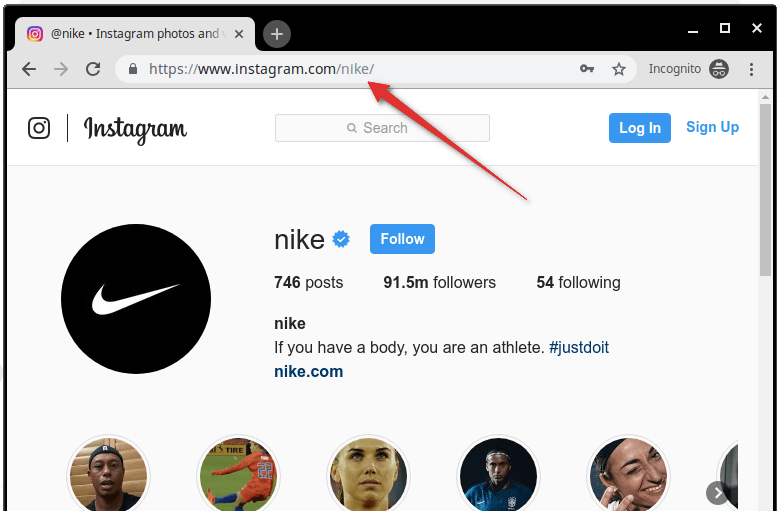Marketing Tips
How to Start a Blog for Affiliate Marketing

Creating a blog for affiliate marketing programs is an effective strategy to monetize your online presence. By leveraging the vast reach of the internet, you can promote products under various commission plans and earn commissions by directing traffic to affiliated websites.
Whether you’re a seasoned marketer or just starting out, this article will guide you through the process of creating a successful blog that generates income through affiliate programs and well-structured commission plans.
What is affiliate marketing?
Affiliate marketing is a type of digital marketing where publishers earn a commission by promoting a product (service) made by another retailer using an affiliate link. The affiliate partner gets paid for delivering a certain result to the retailer or advertiser.
With minimal upfront costs and unlimited earning potential, it has become one of the most popular methods of making money online.
So how do you create a blog for affiliate marketing?
It all starts with choosing your niche – an area of interest where you have knowledge or expertise. This could be anything from fitness and health to travel or technology. By selecting a niche that aligns with your interests, you’ll not only enjoy writing about it but also attract like-minded readers who are more likely to engage with your content.
Once you’ve chosen your niche, it’s time to set up your blog. You’ll need a domain name – ideally something catchy and relevant – as well as reliable web hosting services. There are many platforms available that make setting up a blog easy even if you don’t have technical skills.
Now comes the fun part: creating valuable content that resonates with your target audience! Write informative articles, product reviews, tutorials, and other engaging posts related to your chosen niche. Remember to incorporate relevant keywords naturally throughout your content so that search engines can easily understand what topics each page covers.
To effectively monetize your blog through affiliate marketing, sign up for reputable affiliate programs within your niche. Pay attention to P4P.Partners, they know what they’re doing. These programs provide unique tracking links that allow vendors to identify sales generated from referrals on their platform back to yours—earning you commissions in return.
So why wait? Start building your profitable blog today!
What is Affiliate Marketing?
Affiliate marketing is a popular online business model that allows individuals to earn passive income by promoting other people’s products or services. Here’s a breakdown of what affiliate marketing entails:
- Parties Involved: In affiliate marketing, there are three main parties involved:
- Merchant/Advertiser: The merchant or advertiser is the creator or seller of the product/service.
- Affiliate/Publisher: The affiliate or publisher is an individual who promotes the merchant’s product/service on their website/blog.
- Customer/Consumer: The customer/consumer is the person who purchases the product/service through the affiliate’s referral link.
- Promotion and Referral Links: Affiliates promote the merchant’s offerings by placing unique referral links on their website/blog. These links contain tracking codes that identify when a customer makes a purchase through them.
- Commission Structure: When customers click on an affiliate referral link and make a purchase, affiliates earn commissions based on predetermined commission structures set by merchants. Commissions can be either fixed amounts or percentage-based.
- Passive Income Potential: One of the biggest advantages of affiliate marketing is its potential for generating passive income. Once you’ve set up your blog and established your audience, you can continue earning commissions without actively selling products/services.
- Benefits for Merchants and Affiliates:
- For merchants, it offers cost-effective advertising as they only pay affiliates when sales are made.
- For affiliates, it provides an opportunity to monetize their blog while offering valuable recommendations to their audience.
- Choosing Profitable Niches: To succeed in affiliate marketing, it’s important to select profitable niches with high demand and reasonable competition levels.
- Building Trust with Audiences: Successful affiliates focus on building trust with their audiences by providing honest reviews, valuable content, and personal experiences related to the products/services they promote.
In conclusion, affiliate marketing is a powerful way to monetize your blog by promoting other people’s products or services. By understanding its fundamental concepts and implementing effective strategies, you can create a successful affiliate marketing business that generates passive income.
Choosing the Right Blogging Platform
When it comes to creating a blog for affiliate marketing, choosing the right blogging platform is crucial. It can greatly impact your site’s performance and success. Here are some key factors to consider when selecting a blogging platform:
- Ease of use: Look for a user-friendly platform that doesn’t require coding or technical skills. This will allow you to focus on creating content rather than dealing with complex website management.
- Customization options: Ensure that the platform offers flexibility in terms of design and layout customization. You want your blog to reflect your brand identity and stand out from competitors.
- SEO friendliness: Optimize your chances of ranking higher in search engine results by selecting a platform that provides built-in SEO features such as customizable meta tags, clean URLs, and sitemaps.
- Mobile responsiveness: With the majority of internet users
Setting Up Your Blog
Setting up your blog for affiliate marketing is an important step in establishing your online presence and attracting potential customers. Follow these steps to ensure a smooth setup process:
- Choose a blogging platform: Selecting the right platform is crucial for creating and managing your blog effectively. Popular options include WordPress, Blogger, and Wix.
- Pick a domain name: Your domain name should reflect your niche and be memorable to visitors. Consider using keywords related to affiliate marketing in order to improve search engine visibility.
- Select reliable web hosting: Opt for a reputable web hosting service that offers fast loading times, high uptime rates, and good customer support. This will ensure that your blog remains accessible at all times.
- Install a content management system (CMS): If you choose WordPress as your blogging platform, install it on your web host using their one-click installation feature or manually upload the files if required.
- Customize the appearance of your blog: Choose an appealing theme that aligns with both your brand image and affiliate marketing goals. Customize colors, fonts, logos, and layouts accordingly to create a visually pleasing experience for visitors.
- Configure essential settings: Set up
Final
In conclusion, creating a blog for affiliate marketing can be a highly effective strategy to generate passive income and establish yourself as an authority in your niche. By following the steps outlined in this article, you can set up a successful blog that attracts targeted traffic and converts visitors into loyal customers.
Remember to choose a profitable niche with high-demand products or services, conduct thorough keyword research to optimize your content for search engines, and consistently create valuable and engaging posts. Utilize various promotional channels such as social media platforms and email marketing to drive traffic to your blog.
Additionally, build relationships with other bloggers and influencers in your industry through collaboration opportunities and guest posting. This will help expand your reach and increase brand awareness.
Keep track of your performance using analytics tools to identify what strategies are working best for you so you can continue refining your approach over time.
By implementing these tips, staying consistent, and constantly adapting to changes in the market, you’ll be well on your way to building a successful affiliate marketing blog that generates steady revenue streams while providing value to your audience. So don’t wait any longer – start creating your own lucrative blog today!
-

 Manage Your Business2 days ago
Manage Your Business2 days agoTOP 10 VoIP providers for Small Business in 2024
-
Edtech2 days ago
How to fix PII_EMAIL_788859F71F6238F53EA2 Error
-

 Grow Your Business6 days ago
Grow Your Business6 days agoThe Average Size of Home Office: A Perfect Workspace
-
Solution Review6 days ago
Top 10 Best Fake ID Websites [OnlyFake?]
-

 Gaming Technologies4 days ago
Gaming Technologies4 days agoHow to Set Up Text-to-Speech for Channel Points on Twitch







